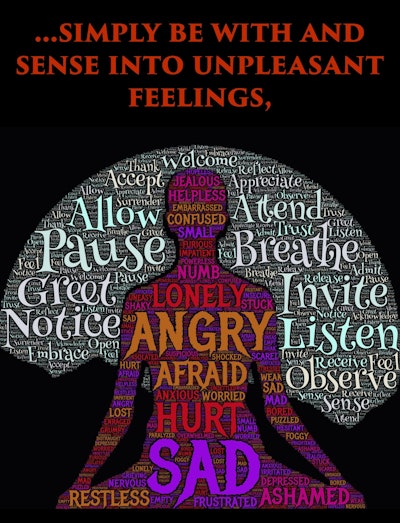
Emotional intelligence has been a concept in the business community for more than two decades. John D. Mayer and Peter Salovey were the first to present the concept and model of emotional intelligence, and they did so in their academic journal article “Emotional Intelligence” in 1990. However, it did not become a business buzzword until after Daniel Goleman published his bestselling book in 1995 titled Emotional Intelligence: Why it can matter more than IQ. Despite its popularity as a phrase, emotional intelligence is likely still a concept, albeit an important one, that many managers may not know much about, and it is one that we have not tackled in our column previously. Author Goleman indicates, and we would agree, that emotional intelligence is a key component in great leadership. So, it makes a perfect topic to address in this month’s article.
So what is emotional intelligence and why is it important to your business? Emotional intelligence is often considered an intangible skill trait in people involving emotions and behaviors. Studies have found individuals who possess characteristics that appear to contribute to a higher emotional intelligence tend to outperform those with a lower emotional intelligence. So, if you can either recognize strong emotional intelligence in personnel or train them about emotional intelligence, then you may be able to positively impact the performance of your grain and feed business. Cary Cherniss in The Business Case for Emotional Intelligence succinctly summarizes 19 researched business cases illustrating how emotional intelligence contributed to business profit either directly through increased productivity and increased revenues or through reduced costs of turnover. Work by Dr. Travis Bradberry and Jean Greaves found that 90% of the best performers have what is considered a high emotional intelligence. And, these best performers may not be the individuals with the highest IQ score but rather they might be average in that category. What helps these folks perform so well? One trait might be their emotional intelligence.
Mayer and Salovey in their 1990 article “Emotional Intelligence” defined emotional intelligence as “the ability to monitor one’s own and others’ feelings and emotions, to discriminate among them and to use this information to guide one’s thinking and actions.” They expanded their definition in 1997 to “the ability to perceive emotions, to access and generate emotions so as to assist thought, to understand emotions and emotional knowledge, and to reflectively regulate emotions so as to promote emotional and intellectual growth.”
这些定义是什么意思?这意味着一些people are better at understanding and recognizing their own emotions and the emotions of others, and they are able to use this awareness and knowledge to manage their behavior and their relationships. And so, they have a higher emotional intelligence than someone who does not do these things as well. How well you or your employees can do these things impacts your business working relationships and potentially your business success. Cherniss highlights one case study by Martin Seligman about the emotional intelligence competency of optimism and its relationship to sales. Seligman found that life insurance salespeople who scored high on a test of learned optimism sold 37% more insurance in their first two years than those who scored as pessimists. It might be that your higher performing feed salespeople have higher emotional intelligence than lower performing individuals. You might use this type of information to either train all sales personnel about emotional competence, or you might consider whether lower performing salespeople might have skills that better suit them for different positions.
Key elements of emotional intelligence
In their further developed conceptual model of emotional intelligence, Mayer and Salovey (“What is Emotional Intelligence?,” 1997) divide emotional intelligence into four skills: perceiving emotions, using emotions, understanding emotions and managing emotions. Perceiving emotions is the ability to identify and interpret emotions in yourself, others and objects such as pictures. So, you notice and draw a conclusion about someone’s emotions. Using emotions is your ability to employ emotions in order to think and solve problems. You recognize your own current mood or emotional state and based on this you decide what to work on today … like in your grain and feed business: either analyzing the monthly financial statements or making personal visits to your customers … such that you recognize your own current mood and use this information to either help your work; or you work to not let it negatively impact your work.
Understanding emotions is the ability to comprehend emotional language and recognize relationships among emotions. This means that you are able to recognize and respond to variations in emotions that may range from very small to very large, and you can identify that emotions may change over time. Managing emotions is your ability to control emotions in yourself as well as in other people. Controlling your emotions can sometimes be difficult, but losing control of your emotions and then dealing with the aftermath can often be even more arduous. You may also work to impact or control the emotions of others in order to bring about your own desired outcome to a particular situation. Here at the university, we sometimes get calls from students’ parents, and the parent may be unhappy for a number of reasons, but let’s say that this time it is because Andy did not get as much scholarship money as the parent expected or maybe Andy did not get any this year since his grades dropped significantly. We can tell from the tone and word selection that the parent is unhappy and this unhappiness is projected directly at us. “YOU did not award Andy enough in scholarships!”
It would be easy to snipe back in an arrogant tone and loud voice a response emphasizing either the parent’s misgivings or Andy’s poor performance. But, is this the approach to bring about the least-negative outcome? Can we walk away from this with the parent not being any angrier than when our conversation started? We probably can, if we can control our emotions including voice tone and word selection. We don’t have to give Andy any more money to improve the situation, we just need to recognize the emotions, use the information, and manage the emotions to walk away with a more positive situation than prior to the phone call. Can you relate this to a feed or fertilizer customer example from your business? If you yell back or speak harshly, you may lose a customer, but if you handle the situation differently you can keep a customer.
One of the most popular business books about emotional intelligence is Emotional Intelligence 2.0 by Dr. Travis Bradberry and Jean Greaves. Bradberry also co-founded TalentSmart which is a provider of emotional intelligence tests. Bradberry and Greaves break emotional intelligence into two core competencies: those of Personal Competence and Social Competence. Personal Competence is your Self-Awareness and your Self-Management. This is the perceiving and using of emotions focusing more on you than on other people. Social Competence is your Social Awareness and your Relationship Management. This is the understanding and managing of emotions focusing on your understanding of other people and your interactions with other people.
What is your level of emotional intelligence?
你还想知道你站在emoti在哪里onal intelligence spectrum? One way to officially find out is to take a scientifically validated emotional intelligence test. If you have ever been involved in a leadership training program, then you may have already done one. One challenge with official emotional intelligence tests is that they do have a fee associated with them. If you are not willing to pay for this type of test, then an alternative approach is to attempt to understand some of the behaviors found through research to be consistent across people with relatively high levels of emotional intelligence and then judge yourself in these behaviors. Taking this to the next level involves working to change and improve yourself in any areas where you might be weak.
Since we cannot administer an official emotional intelligence test to you in this column, we will instead discuss some of the behaviors found in folks with high levels of emotional intelligence by Bradberry in his research. Bradberry has analyzed the data from more than 1 million people who have completed a test administered by TalentSmart to draw his conclusions about the characteristics and behaviors of people and their level of emotional intelligence.
Emotional intelligence is considered central to leadership. You have likely heard the old saying that “your actions speak louder than words.” Well, it really is not just a saying. Bradberry says that people trust what they see leaders doing more than they trust what they hear leaders saying. Bradberry finds that typical behaviors of leaders with high emotional intelligence include: only speaking out when it will help the situation; keeping communications open even when frustrated; recognizing when other people are having an effect on their own emotional state; being open to feedback; showing others that you care about them; accurately picking up on the mood of a room. Now, compare those behaviors with some of the comparable typical behaviors that have been observed in leaders with low emotional intelligence. Those with low emotional intelligence tend to exhibit these actions: sounding off even when it will not help the situation; brushing people off when bothered; denying that emotions impact their thinking; becoming defensive when challenged; focusing on tasks and ignoring the person; not picking up or noticing unspoken tension or the mood of a room. Have you recognized any of these behaviors in either yourself or others?
Bradberry允许他工作和庞大的数据extensively study the actions and characteristics of people found through testing to be highly emotionally intelligent. Some of the other behaviors that Bradberry indicates are trademarks of leaders with high emotional intelligence include the following. We have written previously about the importance of empathy to being a great leader, so it is no surprise that emotionally intelligent leaders are empathetic and curious about other people. These leaders care about other people and are curious about them. Emotionally intelligent leaders embrace change and adapt rather than drag their feet and dread change. They also move on from their mistakes but they do not completely forget them. This means that they do not dwell on their mistakes, they learn from them, adapt, and use all of this to improve. They are self-confident and open-minded which leads to them not being easily offended. They do not let what others say get to them. Emotionally intelligent leaders are in control of their interactions with toxic people. They approach this type of person rationally, keep their own emotions under control, and they avoid letting the ill-intentioned person bring them down. Similarly, emotionally intelligent people limit and control their own negative thoughts. They stop their own negativity and choose to move forward in a positive manner. They also will not spend much time around negative or constantly complaining people, and they do not allow others to reduce their happiness. Are you recognizing some related behaviors of emotionally intelligent people here?
Bradberry的分析和工作已经导致一些interesting results about collective emotional intelligence, differences in skills by gender, differences by job title, and age. Bradberry’s work found that the percentage of people (in his data) with high emotional intelligence skills increased while the percentage of people with low emotional intelligence skills decreased from 2003 through 2007. Maybe this is not surprising since emotional intelligence had become a notable business topic, but it is worth documenting. Bradberry’s data showed men on average to have slightly higher skills in self-management but lower skills in social awareness and relationship management, while males and females were nearly equal in the skill of self-awareness. Bradberry found the level of emotional intelligence to be greater in individuals with the position title of supervisor and manager than in those with position titles of director, executive/vice president, senior executive, and CEO. He also found that older generations possessed a greater level of self-management skills than younger generations. It appears that people grow this skill with age which can represent experience. This type of information can be used when considering strategies and approaches using or improving emotional intelligence in your business.
Now what?
You may want to read and learn more about emotional intelligence. You may want to take an official emotional intelligence test, and then based on your results create a plan and strategies for increasing your emotional intelligence including practicing new behaviors. You may want to try to increase emotional intelligence not just within yourself but throughout your business. One approach is to hold a workshop or training session about emotional intelligence. You might share or suggest reading material for your employees. You can incorporate practicing emotional intelligence into personal and group goals and revisit these goals in performance evaluations. It will help achieve buy-in from employees if you do not just talk about the importance of having a culture of emotional intelligence but if you also have actions that support this culture. Bradberry’s book has strategies for improving yourself and others in each of the four skill areas of self-awareness, self-management, social awareness and relationship management. Briefly, some of these include asking yourself why you do the things that you do: counting to 10 before you react/respond; sleeping on an issue before responding; watching body language; greeting people by name; taking feedback well; explaining your decisions; and acknowledging other people’s feelings. You might choose for a specific time period to focus exclusively on strategies in only one or two of the areas, or you might select only a few of the strategies for all four skill areas to focus on using. Considering the time of year and your typical specific business activities for that time period may also help you decide on an approach. Since each person is different and will vary in their ability of each of the four skill levels, you may want to develop individual game plans that fit into an overall business approach.
While it may seem like we have written a significant amount about emotional intelligence, we have only really “scratched the surface.” There is certainly more out there if you pursue additional work. Some other good resources for more information about emotional intelligence are the Harvard Business Review and Forbes.





















